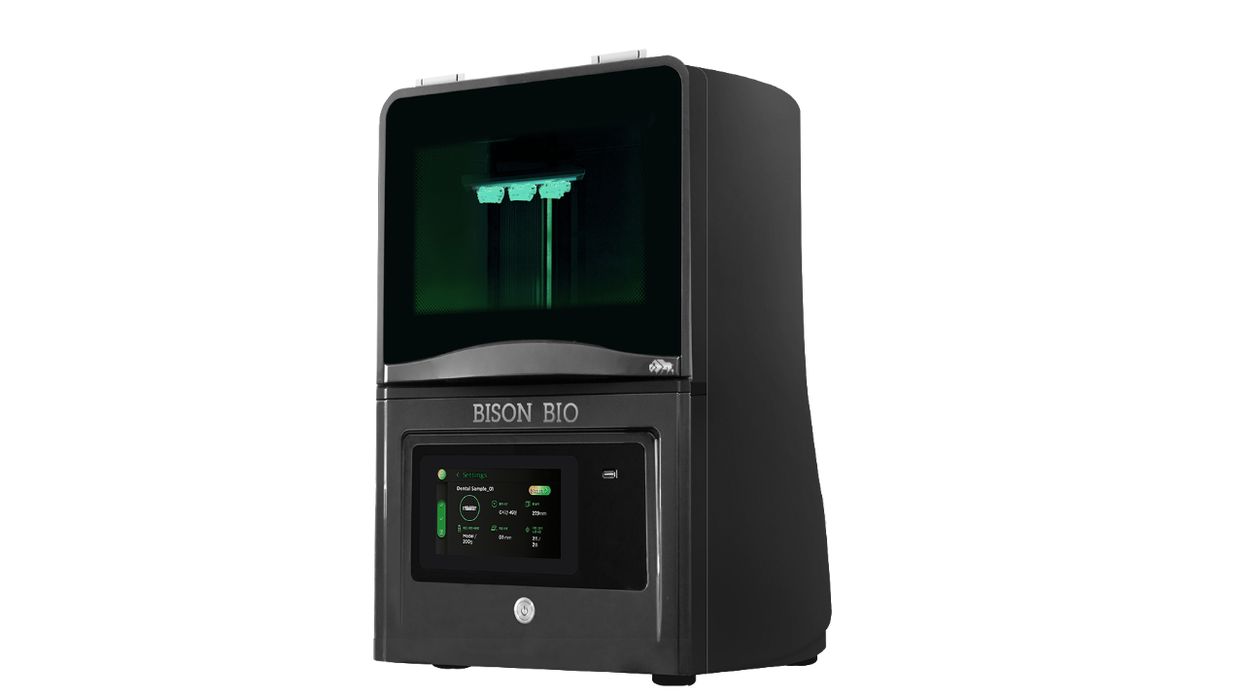
Tethon 3D has released a bioprinter.
The Omaha-based company primarily makes ceramic and polymer materials for resin 3D printing equipment, but has also branched into making machines themselves. Their previous device, the Bison 1000, was a high resolution DLP resin 3D printer.
Now they’ve announced the Bison Bio, pictured above.
The Bio is a product made within a partnership with Korea-based Carima, a well-known manufacturer of 3D printers. The material for the bioprinter is a hydrogel bionic they call GelMA, jointly developed with Cell Bark Innovation. This is mixed with Tethon 3D’s LAP photo initiator to make it ready for printing with the Bison Bio’s DLP 3D printer.
Interestingly, the bionic comes in powder form. It is mixed when preparing for printing, and Tethon 3D said it can be sold in tiny 2g quantities for experimental use.
This is quite a surprising development, as the company has been largely focused on ceramic materials for quite some time. How did they end up heading into the bioprinting market?
It turns out they already knew much about the subject. Tethon 3D explains:
“Tethon 3D’s foray into bioprinting isn’t a random step. The company’s founders, with their medical backgrounds, are deeply committed to propelling advancements in healthcare and biomedical research. This dedication is further amplified by the collaboration with Dr. Hojae Bae, a prominent researcher and Tethon’s bioprinting advisor. Dr. Bae Ph.D, of Konkuk University (Korea), formerly of Harvard Medical School, and Clemson University, is founder of CellBark Innovation, producer of hydrogels. He has published over 140 research papers on bio-industrial technologies.”
The Bison Bio has three different build volumes, which are configureable per job. They are:
- 30 x 20 mm
- 57 x 32 mm
- 96 x 54 mm
Note that these build volumes are vastly smaller than typical desktop 3D printers. That’s because bioprinting typically involves very small prints of live tissue. One problem with tissue printing is that if it is too thick, nutrients from outside cannot soak through to reach the cells. This implies that bioprints are always pretty small and thin.
The Bison Bio definitely isn’t for everyone, but it does target the bio research market, which is rapidly growing. This is a good move by Tethon 3D.
Tethon 3D plans to ship the Bison Bio in four weeks from order, and it’s priced at US$19,950.
Via Tethon 3D
